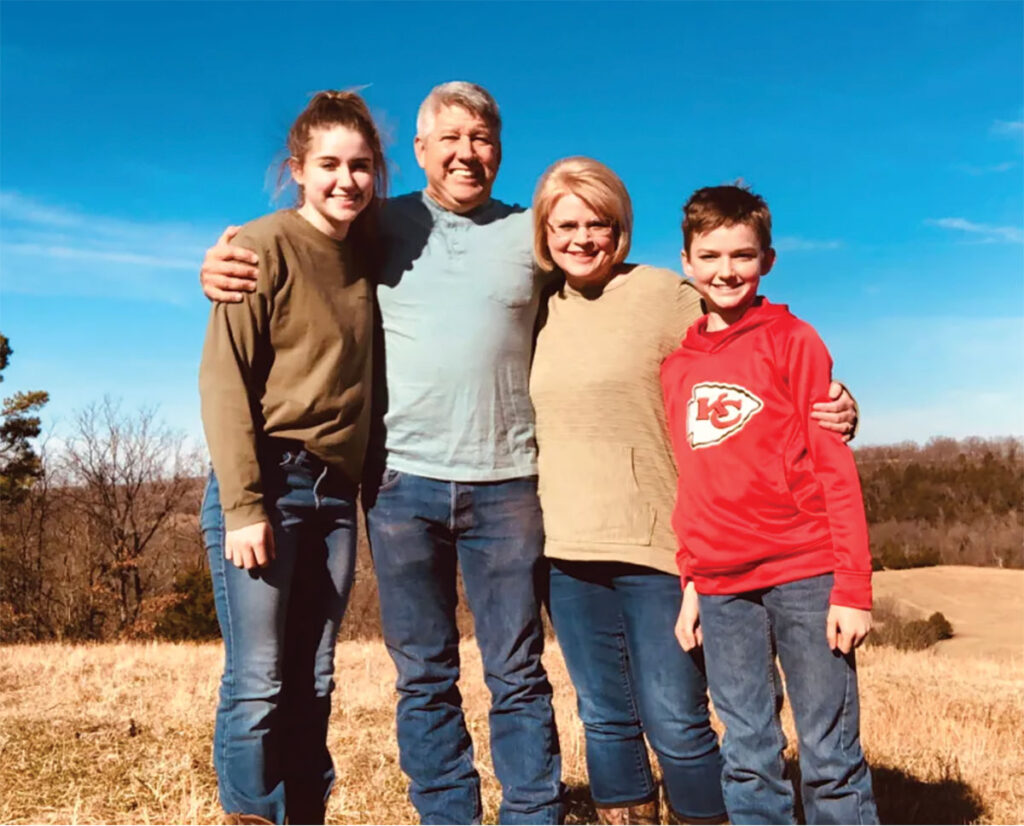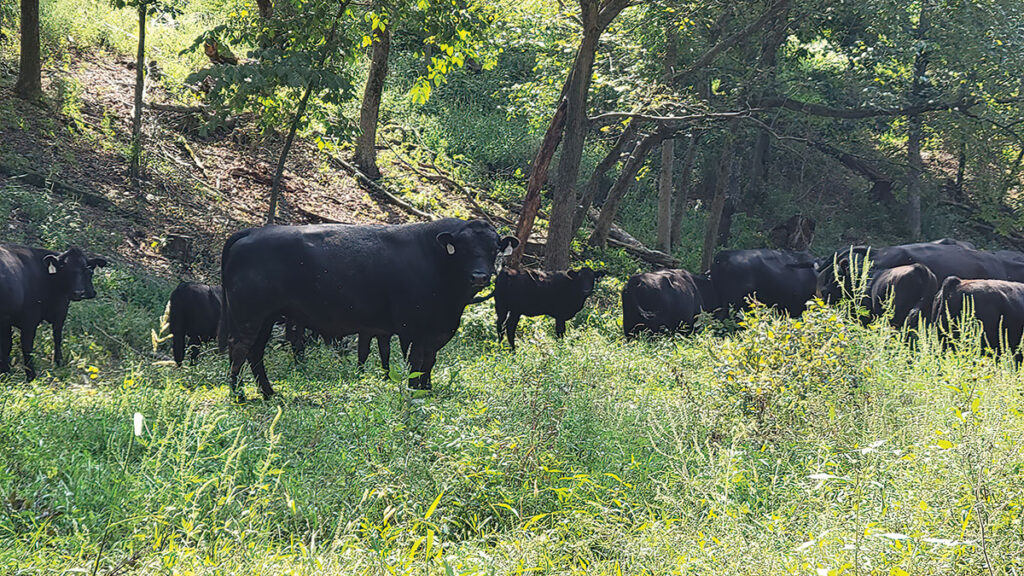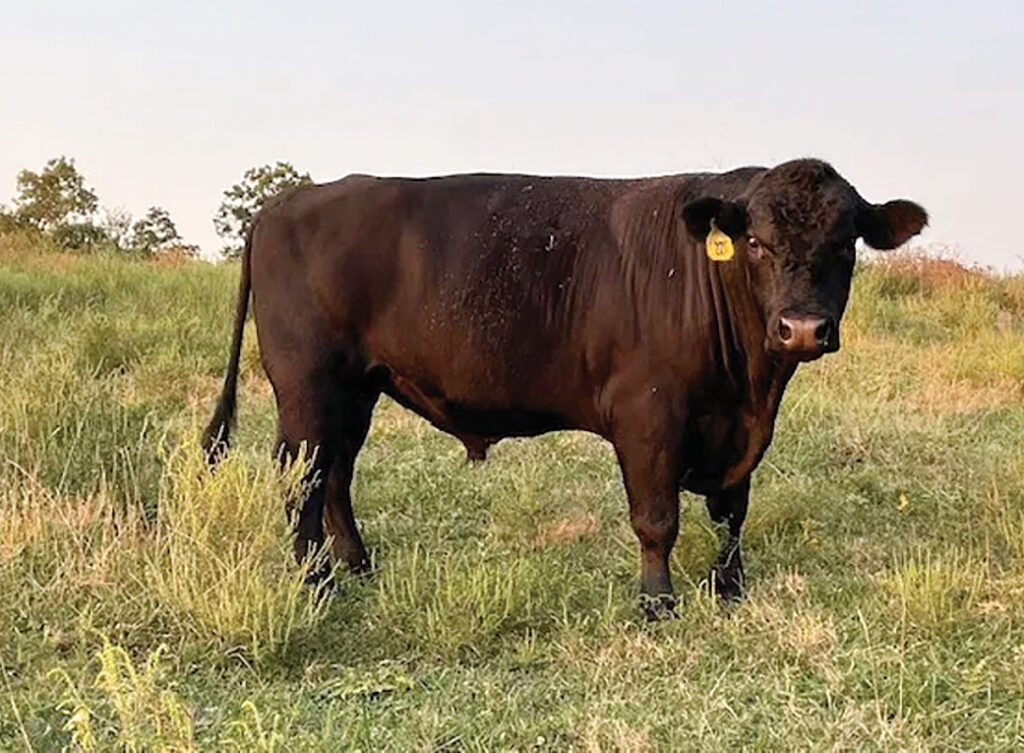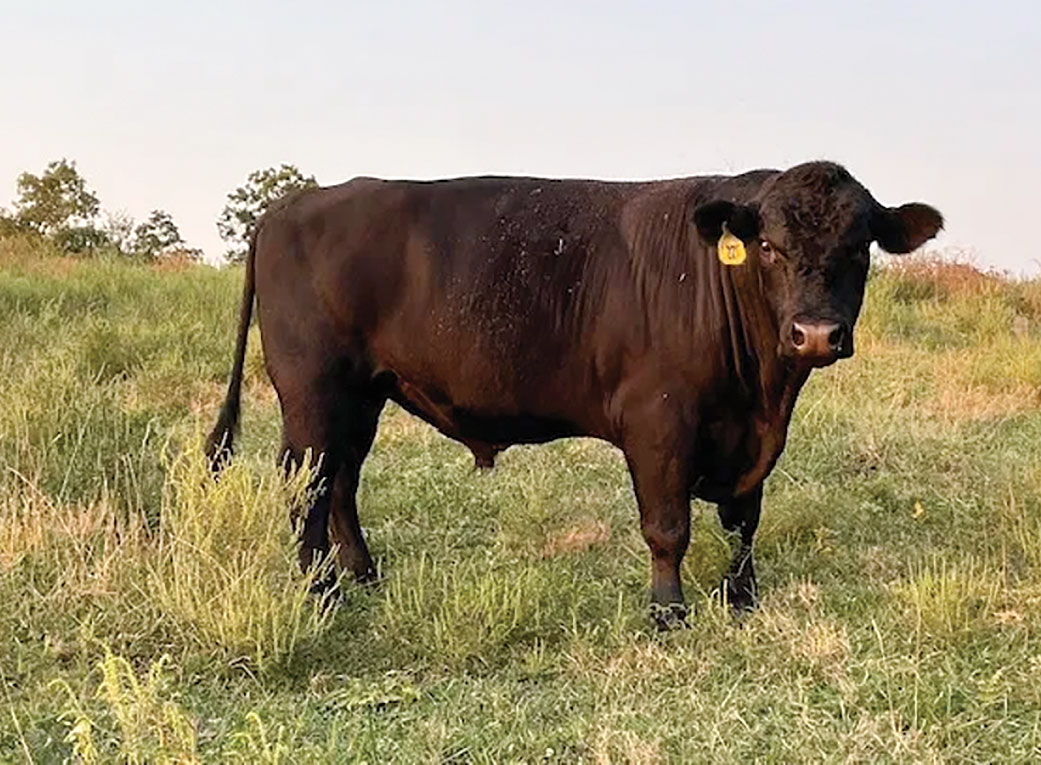
Irish Blacks are the breed of choice for the Wiechman family
PEA RIDGE, ARK. – In Pea Ridge, Ark., on the border of Missouri and Arkansas, is Seven Springs Cattle Company, owned and operated by the Wiechman family. The farm is named for the many springs found there, including one that produces more than 100,000 gallons a day.
The 800-acre operation is home to a 300-head commercial operation and a growing herd of registered Irish Black cattle.
Family patriarch Tom Wiechman has been in the cattle industry for decades, but he considers the Irish Black cattle breed to be ideal.
“I always wanted to produce the best cattle possible,” Tom explained. “About 10 years ago, I did some research and found Irish Blacks. They are the best, solid cattle I’ve ever been around, and I’ve been around cattle all my life. We had a large commercial operation and tried every bull under the sun, from Salers to Simmental to Limousin; we’ve tried them all. Irish Blacks are just good cattle.”
The family currently has 95 head of breeding age Irish Black females, five bulls of service age, and about 17 recently weaned bulls.
They started with 20 head, and through AI and other means, the herd has grown. Tom plans to have more than 100 registered females in two years.
Since 1969, Tom explained, only cattle that meet more than 30 genetic criteria can be registered as Irish Black. Even if a calf is born to a registered dam and sire, it must meet the genetic markers established to be registered.
“There are fewer than 5,000 of these Irish Blacks, and they must meet the criteria for birthweight, weaning weight, marbling, tenderness, and so many other things,” he explained.
They keep DNA data on all cattle, and the breed is closely monitored to ensure no crossbreeding.
Irish Black cattle have a moderate frame, with mature females weighing about 1,100 to 1,200 pounds and mature bulls topping the scale between 1,650 and 1,900 pounds. The steers finish at about 12 to 13 months of age. According to Tom, Irish Black cattle finish very quickly compared to many other breeds, and they do it on grass.
“That’s another reason why I got into them,” Tom said. “We just weaned 50 head; they are plump little calves and have never had creep feed. They are just little butterballs and average about 600 pounds.”
Tom considers the Irish Black breed more economical than other breeds because the calves gain well and finish earlier. An average daily rate of gain of 4 pounds is not out of the question for Irish Black cattle.
“Irish Blacks convert feed better than any cattle I’ve ever been around,” he said. “The backfat on these calves isn’t going to be one-eighth of an inch.”

All cattle at Seven Springs Cattle Company are pasture-based, consuming the grass and hay grown on the farm, along with mineral supplements, with just the calves getting a small amount of grain in the winter. Tom said the farm has Bermudagrass and fescue, and they will be planting perennial ryegrass in the future. The fields and pasture also contain clover.
“I know some people are scared of bloat, but with the cost of nitrogen these days, we let them graze it,” Tom said of the clover in his forages. “We haven’t had a cow with bloat for at least five years.”
The Wiechmans have incorporated their Irish Black herd sires into their commercial herd, and the results have been outstanding.
“The first year I did this, I went to Nebraska and bought two Irish Black bulls; I didn’t even think they would make good steers when I got there. The first calf crop out of those bulls averaged 100 pounds heavier than I had ever weaned. They carry a lot of carcass weight. Also, these bulls are just so fertile; young bulls will breed 70 to 100 cows on the first cycle.”
The Irish Black herd is bred for spring calving, and both AI and natural cover are utilized. Females are early maturing and have a high fertility rate. Tom said heifers failing to produce a calf by the age of 2 are subject to being culled.
Tom appreciates the mild-tempered and hardiness of the breed, calving ease and maternal traits. Birthweights average about 60 to 70 pounds, and the dams are heavy milkers.
Seven Springs Cattle Company has a signature grass-finished beef line, offering customers wholes or halves. The beef program is the idea of his wife, Lisa, and about 30 to 40 head are sold each year. Cattle for the market are from his F1 crosses and individuals not suited for breeding.
Tom’s goal is to eventually phase out the commercial herd, replacing it with just Irish Black cattle and expanding his seedstock operation.
“I haven’t sold a single female born on my land, and I don’t intend to until I phase out my commercial cows,” Tom said. “I’ve been selling bulls for five years. Right now, I have 17, but I will cull those down three different times, so I don’t know what we will have by the time they are breeding age. If a bull has one thing wrong with him, I will castrate him because I don’t want a bad bull on the market.”
As Tom develops his herd of Irish Black cattle, he feels his plan to expand is coming at the right time, especially as more producers see what the breed’s genetics can do for their herds.
“With the limited number out there and the demand, I think this is a good time to be in the business,” he said. “You put an Irish Black bull in with a generic herd of cattle; those heifers are so beautiful and uniform, you want to keep every heifer you get.”








